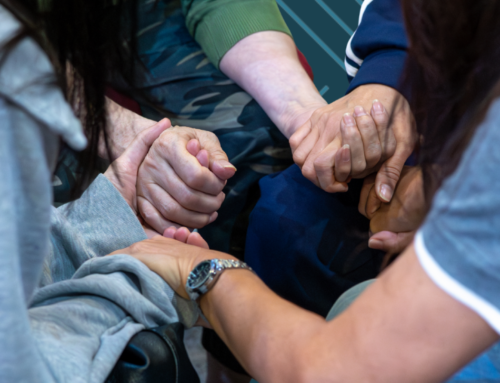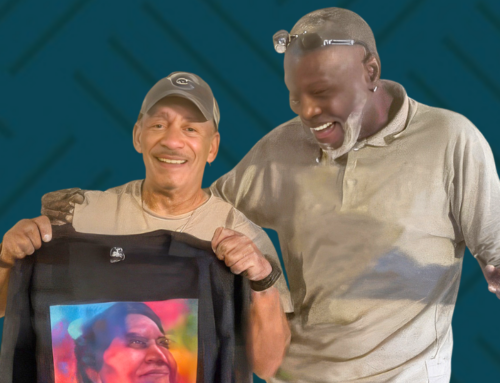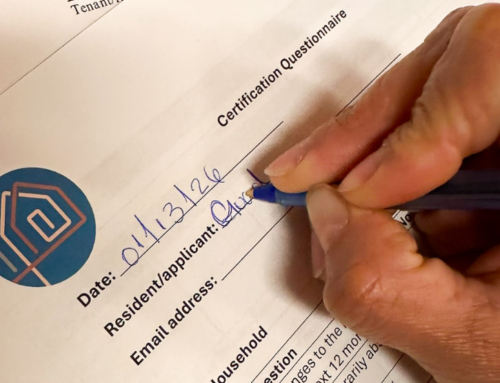It was the first time Benjamin had faced this level of resistance. “I was caught off guard being seen as a threat. The attitude was ‘Who is this guy? What are his qualifications? What’s he doing here asking these questions?’”
It’s rarely this way. Benjamin, our education liaison on staff at Joshua Station, is a gentle and diplomatic soul. Well regarded in any setting, he builds great relationships with our young residents’ schools. He’s a difference-maker for children at life junctures that impact all their years to come.
Children experiencing homelessness fall between cracks. That all changes when kids arrive at Joshua Station. Benjamin is relentless in ensuring crack-falls won’t happen. He works the web of micro-partnerships: students, parents, teachers, special needs staff, and administrators.
When Benjamin sends a text message connecting a parent with a teacher about an issue, the groundwork has already been laid. In weekly check-ins with each student and parent, he listens for successes and challenges. “My ultimate goal is to empower parents and students with the tools to engage their school for success,” Benjamin says. The teachers do a great job and are supportive. “It’s wonderful to see it all come together and a child finally gets on track.”
“So, it was just bizarre,” Benjamin says of the tense meeting he found himself in. In a highly esteemed charter school! Liso*, a Joshua Station special needs student, was struggling and fearful. Bullying? Yes, a classic egregious case. But the dark part, Benjamin discovered, was that the bully was the teacher.

It came to a head when the teacher pinned a sign on Liso’s clothing with a shaming message, forcing him to wear it around school. Liso’s mom was alarmed—and being a refugee immigrant, she was fearful of the system.
Benjamin knew he had to act. He worked closely with our Family Advocate Rhiannon Middleton to craft a careful approach on Liso’s behalf.
“I called a meeting with the principal, who we thought might be receptive. When the mom and I walked in, there was a whole group of people who met me with silence and glares. A translator was needed, and even the translator later privately expressed shock at the atmosphere.”
As everyone at Joshua Station knows, Liso has a sweet and shy disposition. In the meeting, he was portrayed as the school’s problem. True, he had acted out of frustration when pushed absolutely beyond the limit. Aside from that, no has ever seen such a reaction from Liso before.
“I pointed out that the IEP [individualized education program] was incomplete and poorly assembled, Benjamin says. “It was not being followed, and it had never been translated into the family’s language as required. It didn’t reflect knowledge of Liso’s special needs at all.” The group was dismissive, and then defensive when Benjamin reminded the staff that these protocols are required by law.
The school’s legal team would mount a defense, was the reply.
“At that moment I took a deep, deep breath. The word peacemaking sprang to my mind. It’s been our theme for the year with Joshua Station youth. We hand out “Peacemaker Awards” each week. We practice peacemaking strategies. What strategies could I possibly use in this situation?” Maybe… curiosity and listening?
Benjamin asked each teacher what challenges they experienced in educating Liso. Soon the entire tone of the group shifted. As one teacher responded, other teachers offered suggestions.
“If it wasn’t for a peacemaking posture, I would have pressed in with sword sharpened,” Benjamin reflects. But as it unfolded, the team became allies for Liso. The IEP was rewritten, translated, and is being followed. In a follow-up call, Benjamin was thanked for his input and advocacy.
“Walls came down. I’m no longer stonewalled. Conflict dissolved into collaboration,” Benjamin says. And Liso’s thriving.
Liso’s name and other identifying details of this story have been changed. We are hopeful that this disturbing incident will prompt substantive change within the school culture.







